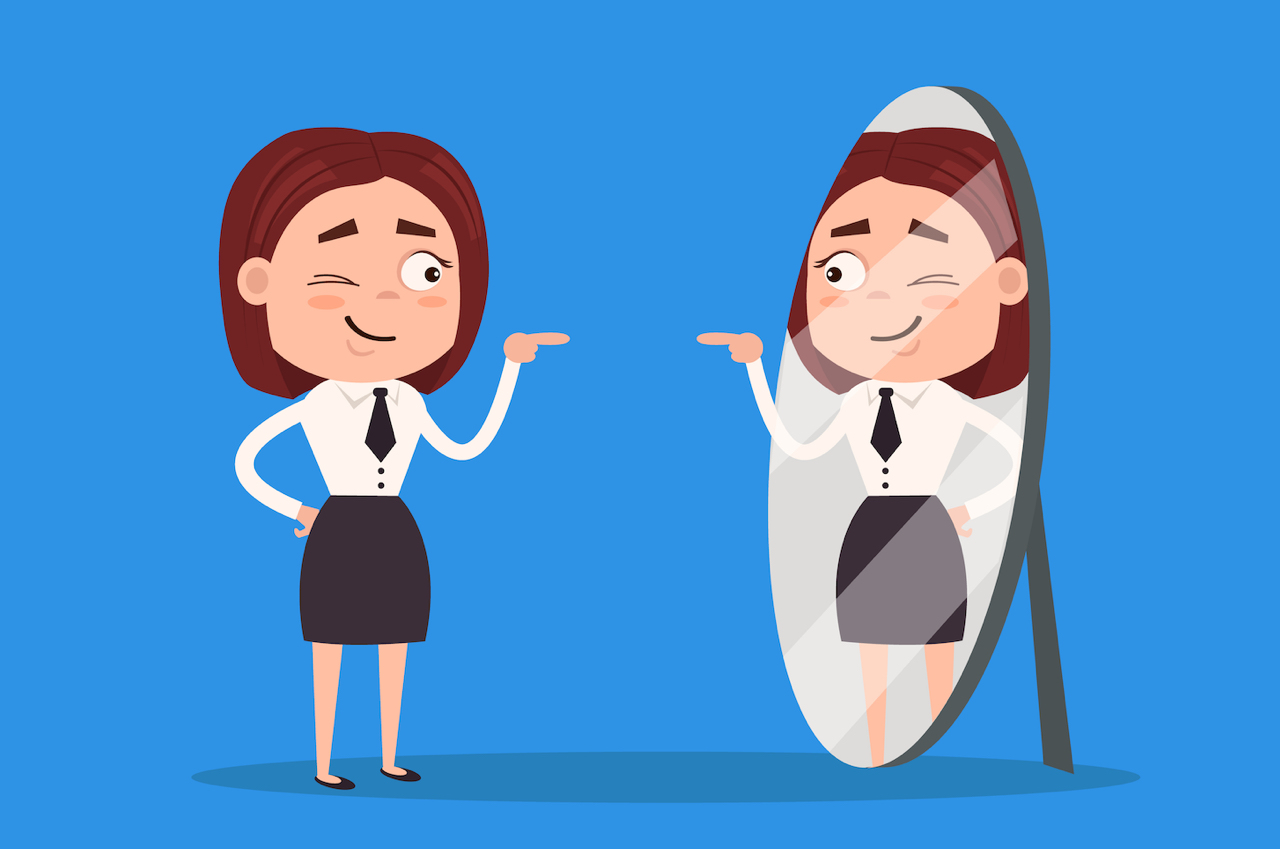Picture this. You’ve studied hard for a test and aced it. But a little voice in your head tells you that it’s not good enough because some of your classmates received higher marks. Within seconds, you’ve talked yourself into a slump and all your motivation is gone!
If this sounds familiar, you may lack self-confidence, but don’t worry. Many people think that confidence is just “something you have”, but it’s not a fixed quality. The outcome of the thoughts you have about yourself plays a big part in whether you have self-confidence or not. Therefore, if you change your mind about yourself (i.e. have positive thoughts about yourself), you can build up self-confidence.
Having a belief that you are capable and resilient also plays a role in your level of self-confidence. For example, this may refer to your belief in your ability to speak in front of an audience, learn a new technology, lead a team, make a change in your life (with studies, a career or relationship), and manage conflict.
Stop limiting yourself
When you’re a child, almost everything seems possible. Once you’re an adult, this may change because of how other people have imposed their beliefs on you – about what you can and can’t do! There are ways to stop limiting yourself and it starts with being positive. Hold onto the belief that anything is possible and don’t allow negative thoughts to creep up and ruin your plans. For example, if you’d like to start a part-time business, push away thoughts about whether you’re capable, and give it your best shot. Visualising your success can help boost your confidence, too. Try to imagine yourself as a successful entrepreneur wearing a suit, in your own office, with your own staff.
Don’t confuse memory with facts
Your memory doesn’t store information exactly the way it’s presented to you. Instead, it stores it in a way that’s easiest for you to understand and recall. It also stores information in such a way that it aligns with your internal belief system. This means that your brain has a confirmation bias. This can affect your self-confidence negatively. For example, if you have low self-esteem, your brain may store information that confirms your lack of confidence. Avoid this by using facts to build up your confidence. For example, if you’re worried about failing your driver’s license test, remind yourself that you’ve learnt how to drive and studied hard, instead of allowing your mind to convince you to think you’ll fail.
Face your fears
When you have a fear of something, you’re likely to let it control you and prevent you from doing certain things. This is because when you feel out of control, your brain takes the driver’s seat because your emotions run wild. But when you face your fears, you’re taking back control and becoming more confident in yourself. Take one step at a time. Break the fear down into pieces until you’ve reached your goal. For example, if you’re afraid of flying, start by taking a trip to the airport to become comfortable with being there. Next, take a short flight with a loved one. Later, you could try taking a short flight on your own. Continue like that until you’ve conquered your fear.
Create boundaries
To have self-confidence, it’s important that you define yourself and not allow others to define you. Teach others to respect your personal boundaries. Start by being assertive and learning to say no when you want to. It’s fine for others to have opinions, but it’s not acceptable for them to force their beliefs on you. Spend time with people who are assertive or take classes on how to be more assertive. The more control you have over your own life, the more self-confidence you have.
References
- https://www.forbes.com/sites/margiewarrell/2015/02/26/build-self-confidence-5strategies/#3da7cca66ade
- https://www.success.com/blog/7-mental-hacks-to-be-more-confident-in-yourself
- https://www.entrepreneur.com/article/281874
- https://www.huffingtonpost.com/carla-schesser/why-selfconfidence-is-cru_b_8438592.html
- http://www.self-confidence.co.uk/articles/top-ten-facts-about-low-self-esteem/
- https://www.bidsketch.com/blog/everything-else/build-confidence/

